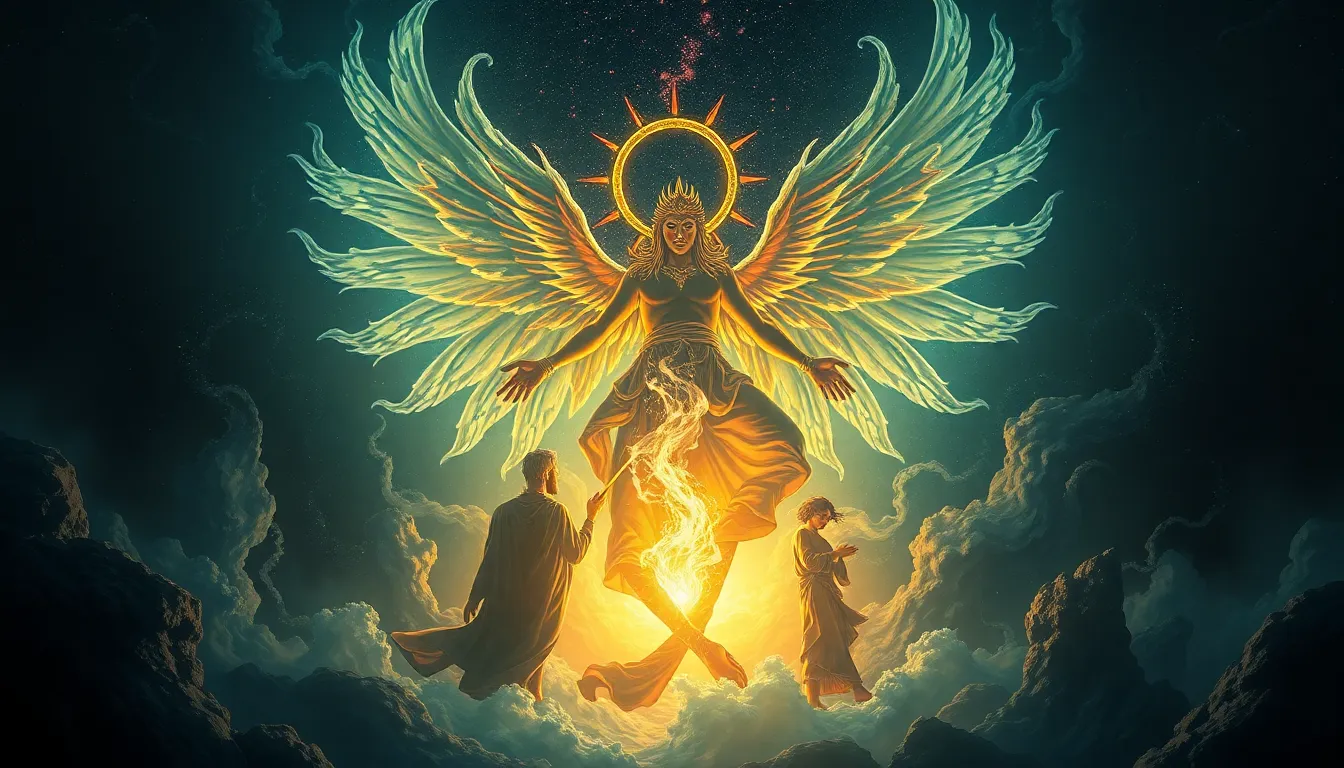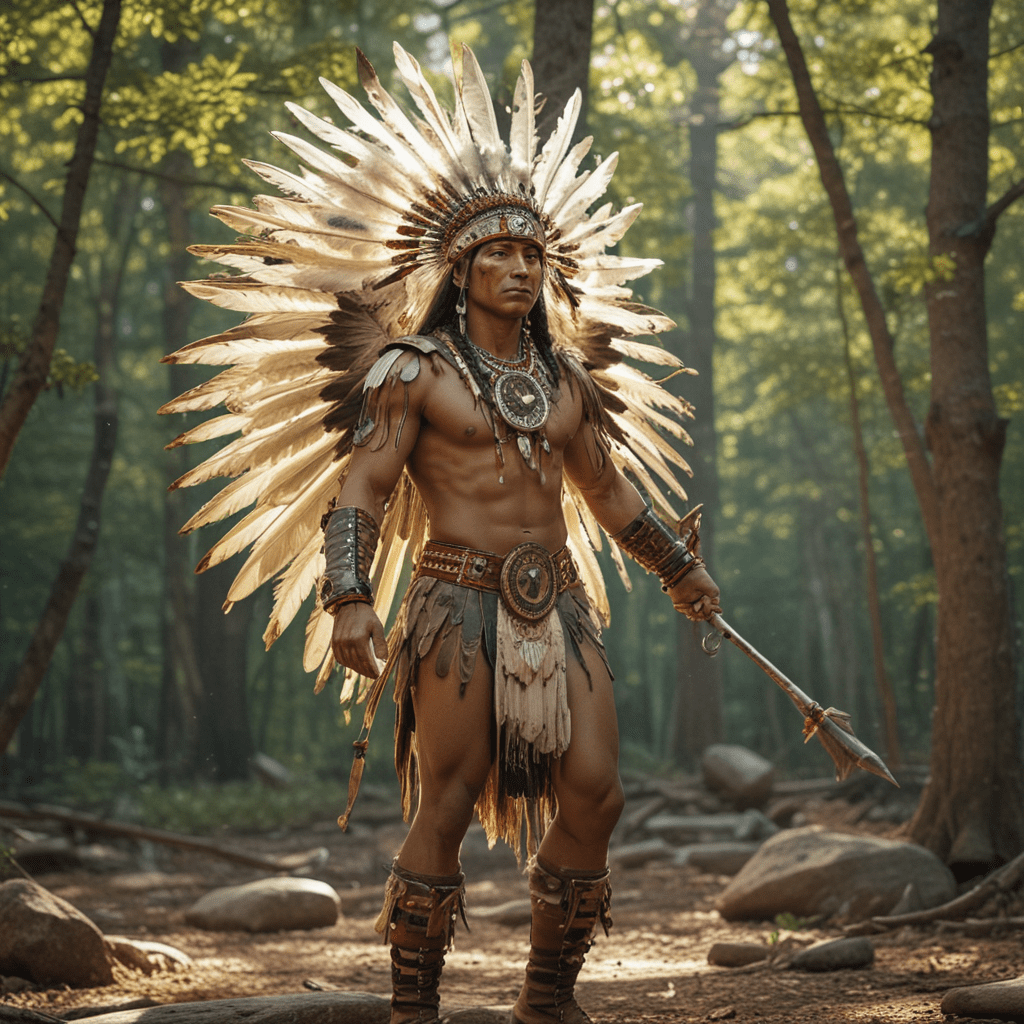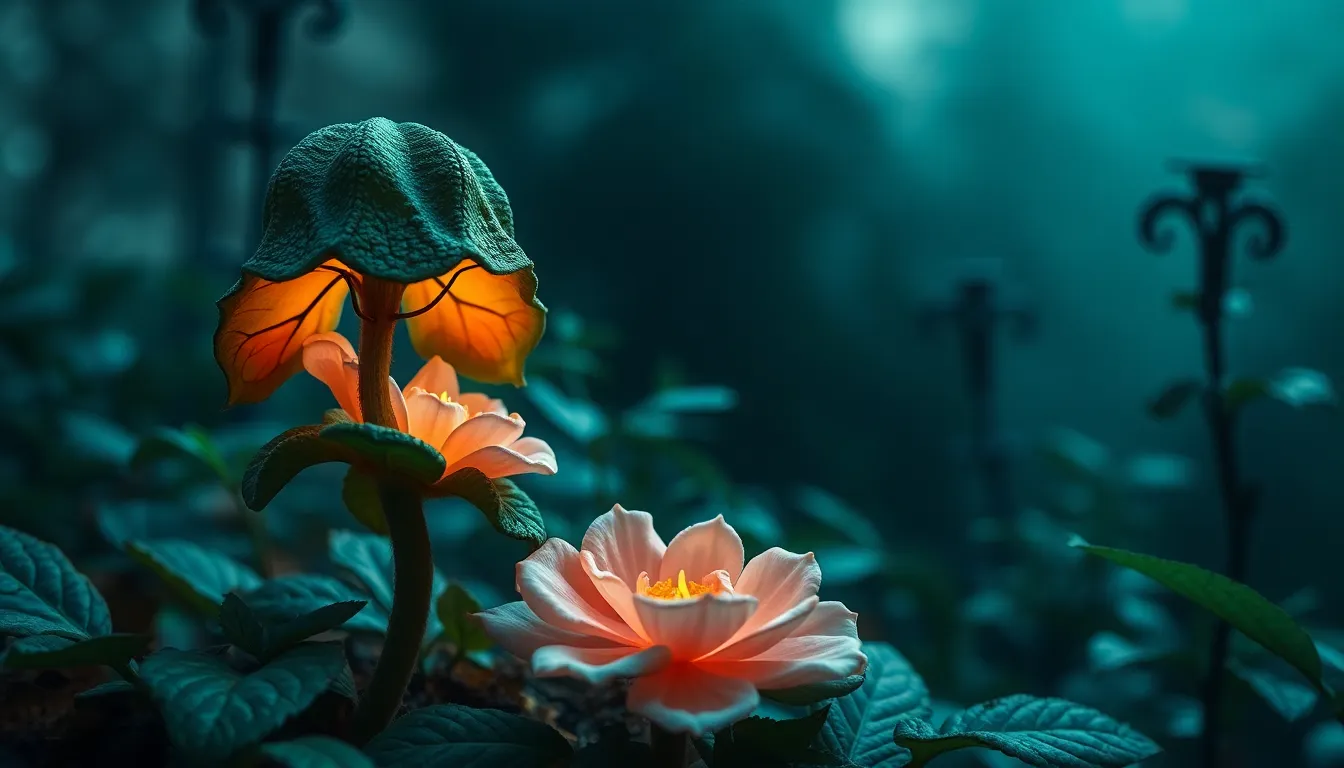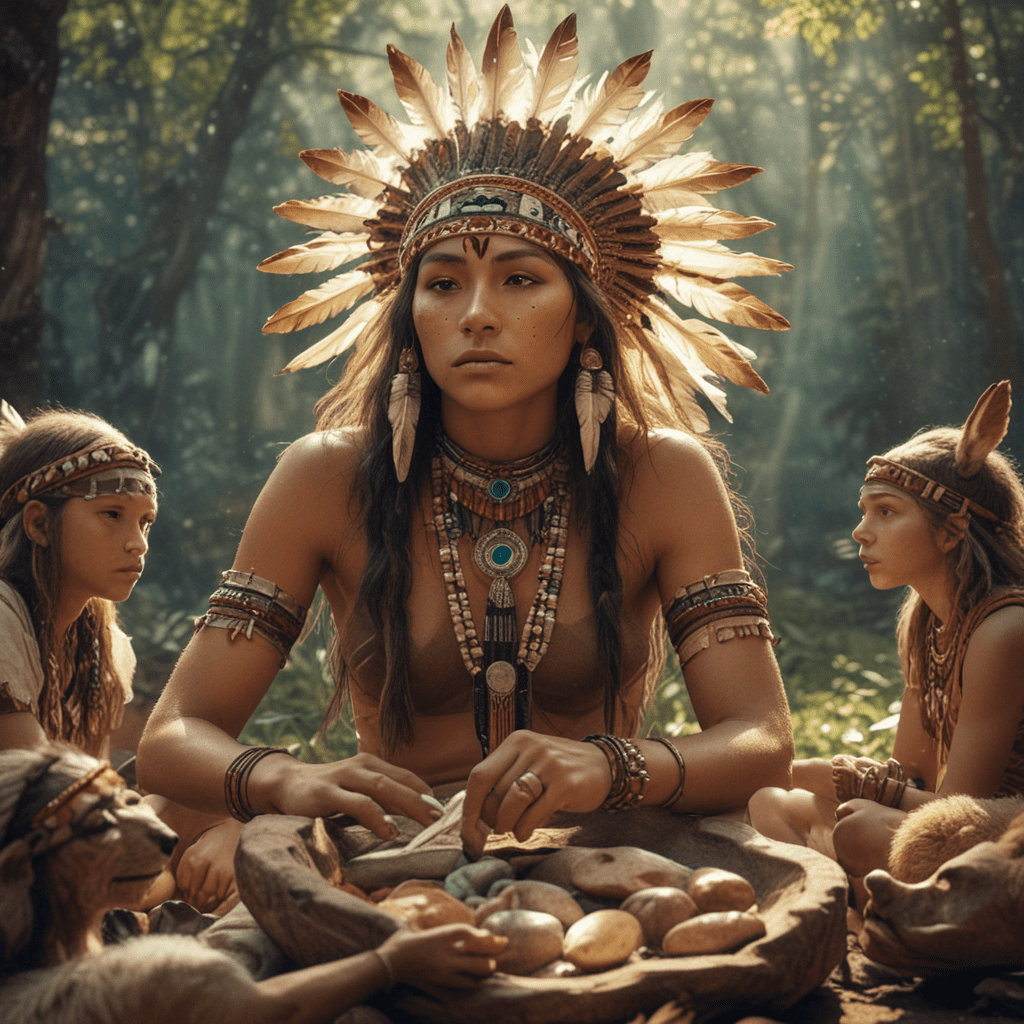The Birth of the Divine: Creation Myths That Inspire Faith
I. Introduction
Creation myths are traditional narratives that explain the origins of the world, humanity, and the relationship between the divine and the mortal. These stories vary widely across cultures, yet they often serve similar purposes, providing insight into the nature of existence and the universe.
The importance of creation myths lies in their ability to shape cultural identity and shared beliefs within communities. They are foundational stories that not only explain how the world came to be but also serve as moral and ethical frameworks that guide behavior and beliefs.
This article aims to explore diverse creation myths from various cultures, highlighting how these narratives inspire faith and connect people to their heritage and the cosmos.
II. The Role of Creation Myths in Human Society
Creation myths play a crucial role in helping societies understand their existence and the universe. They provide answers to fundamental questions such as:
- Why are we here?
- What is the nature of our reality?
- How do we relate to the divine and to each other?
Furthermore, these myths contribute to cultural identity by fostering a sense of belonging among members of a community. They encapsulate shared beliefs and values, creating a bond between individuals and their culture.
On a psychological level, creation myths provide hope, purpose, and meaning. They can instill a sense of wonder and connection to something greater than oneself, which is vital for mental and emotional well-being.
III. Indigenous Creation Myths: A Connection to Nature
Indigenous cultures often have creation myths that emphasize a deep connection to nature and the environment. These narratives reflect the relationship between humans and the natural world, highlighting respect for all living things.
A. Overview of Indigenous Beliefs
Indigenous beliefs are typically rooted in a worldview that sees the Earth as a living entity, with all creatures interconnected. Creation myths often teach lessons about sustainability and stewardship.
B. Example 1: The Dreamtime of Australian Aboriginal Cultures
In Australian Aboriginal cultures, the Dreamtime is a foundational concept that describes the period when ancestral beings created the world. These beings shaped the land, established laws, and created all living things. The stories of the Dreamtime are rich in symbolism and serve as cultural touchstones that guide social behavior and spiritual practice.
C. Example 2: The Earth Diver Myth from Native American Cultures
The Earth Diver myth, found in various Native American cultures, tells of a being that dives into the primordial waters to bring up mud, which becomes the Earth. This myth emphasizes the theme of rebirth and the interconnectedness of life, illustrating the belief that humanity is born from the Earth itself.
IV. Ancient Mesopotamian Myths: The Genesis of Civilization
Ancient Mesopotamian myths are among the earliest recorded creation stories, illuminating the beliefs and values of early civilizations.
A. The Enuma Elish: Creation from Chaos
The Enuma Elish is a Babylonian creation myth that narrates the battle between the god Marduk and the chaos monster Tiamat. Marduk’s victory leads to the creation of the world from Tiamat’s body, symbolizing the triumph of order over chaos. This myth reflects the Mesopotamian understanding of civilization’s dependence on divine favor and order.
B. The Atrahasis Epic: Humanity’s Purpose and Divine Intervention
The Atrahasis Epic tells the story of humanity’s creation by the gods to relieve their labor. However, as humanity multiplies, they become too noisy for the gods, leading to divine intervention through plagues and eventually a great flood. This narrative explores themes of divine will and the fragility of human existence.
C. Influence on Later Abrahamic Creation Narratives
These Mesopotamian myths have profoundly influenced later Abrahamic creation narratives, particularly in their themes of chaos, divine intervention, and the relationship between humans and the divine.
V. Eastern Philosophies: Harmony and Balance in Creation
Eastern philosophies often present creation as a harmonious process that emphasizes balance and the cyclical nature of existence.
A. Hinduism: The Cosmic Cycle in the Rigveda
In Hinduism, the Rigveda describes the cosmic cycle of creation, preservation, and destruction. The god Vishnu is often depicted as the preserver of the universe, while Shiva represents destruction, illustrating the balance necessary for renewal and growth.
B. Taoism: The Concept of Wu Wei and the Creation of the Universe
Taoism introduces the concept of Wu Wei, or “non-action,” suggesting that the universe is created through a natural process of balance and flow. The Tao, or the way of nature, is the source from which all things arise, emphasizing harmony with the universe.
C. Buddhism: The Non-Theistic Approach to Creation and Existence
Buddhism offers a non-theistic perspective on creation, focusing on the concepts of impermanence and interdependence. Rather than a singular creation event, it teaches that existence is a continuous cycle of birth, death, and rebirth (samsara).
VI. Abrahamic Faiths: The Unity of Creation
The Abrahamic faiths—Judaism, Christianity, and Islam—share common creation narratives that emphasize the unity of creation and human responsibility.
A. The Genesis Creation Narrative in Judaism and Christianity
The Book of Genesis describes God creating the world in six days, culminating in the creation of humanity in His image. This narrative establishes a foundational belief in the inherent dignity of human life and the responsibility to care for creation.
B. The Islamic Creation Story in the Qur’an
The Qur’an similarly describes God as the creator of the heavens and the earth, emphasizing His sovereignty. It teaches that humans are stewards of the Earth, tasked with upholding justice and compassion in their actions.
C. Common Themes: Divine Will, Human Responsibility, and Stewardship of the Earth
Across these faiths, common themes emerge, including the belief in divine will, the significance of human responsibility, and the call to stewardship of the Earth, underlining the interconnectedness of all creation.
VII. African Creation Myths: Diversity and Spirituality
African creation myths are characterized by their diversity and the richness of oral traditions that convey spiritual truths and cultural values.
A. The Role of Oral Traditions in African Cultures
Oral traditions play a vital role in African cultures, serving as vehicles for passing down creation myths and moral lessons through generations. These stories are often recited during rituals, ceremonies, and community gatherings.
B. Example 1: The Creation Myth of the Dogon People
The Dogon people of Mali have a complex creation myth that involves the beings known as Nommo, who are believed to have come from the star Sirius. Their narrative explains the origins of humanity, the cosmos, and the importance of water in creation.
C. Example 2: The Ashanti Tale of Anansi and the Origin of Stories
The Ashanti people of Ghana tell the story of Anansi, the spider, who is a trickster figure that brought stories to the world. This myth highlights the importance of storytelling in culture and the belief that stories shape human experience.
VIII. Modern Interpretations of Creation Myths
In contemporary society, creation myths continue to inspire new interpretations across various media, reflecting a blend of ancient wisdom and modern thought.
A. Creation Myths in Contemporary Literature and Media
Creation myths have been reimagined in literature, films, and art, often exploring themes of identity, belonging, and the human experience. These narratives resonate with audiences, providing a connection to timeless truths.
B. The Intersection of Science and Spirituality
The dialogue between science and spirituality has led to a resurgence of interest in creation myths, as many seek to find meaning in the scientific understanding of the universe while still honoring ancient narratives.
C. The Resurgence of Interest in Ancient Myths in Modern Spirituality
Modern spirituality often incorporates elements of ancient myths, reflecting a desire for holistic understanding and connection to the sacred. This resurgence highlights the enduring relevance of these stories in navigating contemporary issues.
IX. The Impact of Creation Myths on Contemporary Faith Practices
Creation myths significantly influence contemporary faith practices, shaping rituals, festivals, and ethical frameworks.
A. How



